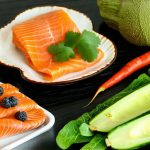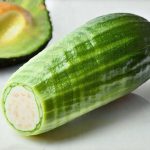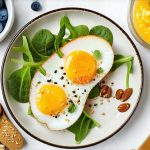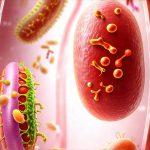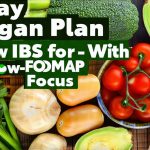A vegan diet, rich in plant-based foods, offers numerous health benefits, from reduced risk of heart disease to improved weight management. However, transitioning to – or maintaining – a fully plant-based lifestyle can sometimes present digestive challenges for some individuals. This isn’t inherent to the diet itself; rather, it often stems from changes in fiber intake, the elimination of certain food groups, or simply needing time for the gut microbiome to adapt. Many people experience temporary bloating, gas, or altered bowel movements as their bodies adjust. Understanding how to proactively support digestion is key to reaping the full rewards of a vegan lifestyle and avoiding discomfort.
The foundation of good digestive health on a vegan diet lies in mindful food choices and preparation techniques. It’s not about eliminating entire categories of plant foods, but rather focusing on digestibility alongside nutritional value. Many plant-based staples are incredibly nourishing, yet can be harder for some to process – beans, lentils, cruciferous vegetables (broccoli, cauliflower), and even certain fruits fall into this category. This article will explore practical strategies to optimize your digestion while enjoying a vibrant vegan diet, focusing on both dietary adjustments and lifestyle factors that promote gut health. It’s about finding what works best for you because everyone’s digestive system is unique. If you are beginning new diet, it’s important to be mindful of changes.
Optimizing Fiber Intake & Food Combinations
Fiber is undoubtedly one of the greatest benefits of a plant-based diet, contributing to satiety, regulating blood sugar levels, and promoting a healthy gut microbiome. However, a sudden increase in fiber intake can overwhelm the digestive system, leading to bloating, gas, and discomfort. The key isn’t to avoid fiber – it’s about increasing it gradually and pairing it strategically with other foods.
- Start slowly: If you are new to veganism or significantly increasing your fiber intake, begin by adding small amounts of high-fiber foods (like beans or lentils) to your diet and gradually increase the portion sizes over several weeks.
- Drink plenty of water: Fiber absorbs water, so adequate hydration is crucial for preventing constipation and ensuring smooth digestion. Aim for at least eight glasses of water per day.
- Choose whole foods: Prioritize whole, unprocessed plant foods over refined carbohydrates. Whole grains, fruits, vegetables, legumes, nuts, and seeds provide fiber along with a wealth of other nutrients.
Food combining is another area often discussed in relation to digestive health. While the scientific evidence supporting strict food combining rules (like never mixing fruit and protein) is limited, many people find that certain combinations are easier to digest than others. For instance, pairing legumes with grains can provide complementary amino acids and potentially improve digestibility, as enzymes in one help break down the other. Experimenting with different pairings and observing how your body responds can be beneficial. Avoid overloading on extremely high-fiber meals; balance is essential. Understanding electrolytes can also help with digestion.
The Role of Gut Microbiome & Fermentation
A healthy gut microbiome – the trillions of bacteria residing in our digestive tract – plays a vital role in breaking down food, absorbing nutrients, and maintaining overall health. A vegan diet naturally supports the growth of beneficial gut bacteria due to its high fiber content, which serves as prebiotic fuel for these microorganisms. However, certain foods can further enhance gut health, while others may disrupt it.
Fermented plant-based foods are particularly valuable. – Tempeh, kimchi, sauerkraut, and kombucha contain probiotics – live beneficial bacteria that contribute to a diverse and thriving gut microbiome. Incorporating small amounts of these into your diet regularly can aid digestion and boost immunity. Beyond fermented foods, focusing on variety in your plant-based diet is crucial. Each different type of fiber feeds different types of bacteria, promoting a more resilient and balanced ecosystem within the gut.
It’s also important to be mindful of potential gut disruptors. Excessive amounts of processed vegan foods (vegan “junk food”) can negatively impact the microbiome. Similarly, artificial sweeteners and certain additives may cause digestive upset for some individuals. Focusing on whole, minimally processed plant foods is always a good starting point. If you’re following a keto diet, mindful eating is also key.
Soaking & Sprouting Grains, Legumes & Seeds
Many plant-based staples – particularly grains, legumes, and seeds – contain anti-nutrients, compounds that can interfere with nutrient absorption or make them harder to digest. Soaking and sprouting are simple techniques that reduce these anti-nutrient levels and enhance digestibility.
- Soaking: Submerge the grain, legume, or seed in water for a specified period (typically 8-24 hours). This helps to break down phytates and other compounds that inhibit nutrient absorption. Discard the soaking water before cooking.
- Sprouting: After soaking, allow the seeds/grains/legumes to germinate by rinsing them several times a day for a few days until small sprouts appear. Sprouting further reduces anti-nutrients and increases vitamin content.
These techniques are relatively easy to incorporate into your routine and can significantly improve the digestibility of these nutrient-rich foods. For example, soaking beans overnight before cooking can drastically reduce gas production. Consider a plant-based diet to help with digestion.
Mindful Eating & Stress Management
Digestion isn’t just a physical process; it’s intimately connected to our nervous system and emotional state. When we are stressed or eating on the go, our bodies prioritize the “fight-or-flight” response over digestion, leading to impaired nutrient absorption and digestive discomfort.
- Practice mindful eating: Slow down, chew your food thoroughly, and savor each bite. This allows for better enzymatic breakdown of food and reduces strain on the digestive system.
- Create a relaxed dining environment: Avoid eating while distracted or stressed. Turn off electronic devices and focus on enjoying your meal in a calm setting.
- Manage stress levels: Incorporate stress-reducing practices into your daily routine, such as yoga, meditation, deep breathing exercises, or spending time in nature.
Prioritizing relaxation during mealtimes is crucial. A relaxed state allows the digestive system to function optimally, enhancing nutrient absorption and minimizing discomfort. The parasympathetic nervous system (the “rest and digest” branch) needs to be activated for efficient digestion to occur.
Herbal Support & Digestive Aids
While not a replacement for good dietary habits, certain herbs and digestive aids can provide gentle support for the digestive process. Ginger, peppermint, chamomile, and fennel are all known for their carminative (gas-relieving) properties. Incorporating these into your diet – as teas, spices, or supplements (consult with a healthcare professional before taking any new supplements) – may help alleviate bloating and discomfort.
- Digestive enzymes: For individuals struggling to digest certain foods, digestive enzyme supplements can provide targeted support. These supplements contain enzymes that break down carbohydrates, proteins, and fats, aiding in digestion.
- Probiotic supplements: While fermented foods are a great source of probiotics, supplements can be helpful for those who don’t consume them regularly or have specific gut health concerns. Choose a high-quality probiotic supplement with diverse strains.
- Hydration & Electrolytes: Maintaining proper hydration and electrolyte balance is essential for optimal digestive function. Consider adding electrolytes to your water, especially after exercise or during hot weather.
Remember that these aids are supplementary. They should be used in conjunction with – not as a substitute for – a healthy vegan diet and lifestyle. Always listen to your body and consult with a healthcare professional if you experience persistent digestive issues. If you have chronic reflux, dietary changes can help. Also, consider how a high-protein diet might impact your digestion. Finally, if you’re on a vegan diet, mindful eating is especially important.


